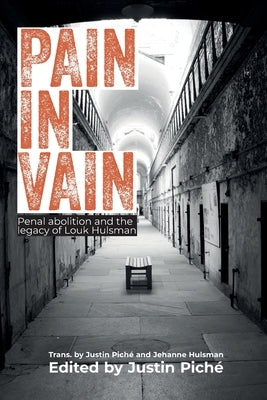- Description
Description
In the 1960s-70s, the abolition of prisons was considered a desirable and viable policy option among a growing number of critical prison scholars and organizers. Penal system bureaucrats and their political masters in several western liberal democracies also sought a significant reduction in the use of incarceration. Yet, despite this rhetoric and the growth of alternatives to incarceration that ensued, prison populations in many parts of the world instead began to soar.
It is in this context that Louk Hulsman, a founder of prison abolitionism, suggested that the abolition of prisons depended not on the creation of community-based sanctions, but on the abolition of criminalization and punishment as a way of thinking about and responding to 'crime'.
While Hulsman's call for penal abolition became influential amongst scholars and activists, the complexity of his analysis and its origins have often been overlooked. In part, this is due to the fact that he unpacked his ideas in the greatest depth during a course of interviews with Jacqueline Bernat de Celis in Peines perdues: le système pénal en question (Le centurion, 1982).
This edited anthology seeks to address this gap by providing the de Celis interviews in English for the first time and including reflections by academics, activists, politicians, policymakers, and practitioners analyzing the global impact of Louk Hulsman's life and work. In so doing, this project highlights the contemporary viability of abolitionism, along with the challenges faced by its proponents.
Author: Justin Piché
Publisher: Red Quill Books
Published: 07/17/2023
Pages: 292
Binding Type: Paperback
Weight: 0.95lbs
Size: 9.00h x 6.00w x 0.66d
ISBN13: 9781926958378
ISBN10: 1926958373
BISAC Categories:
- Social Science | Penology
- Social Science | Criminology
- Social Science | Sociology | Social Theory
This title is not returnable






